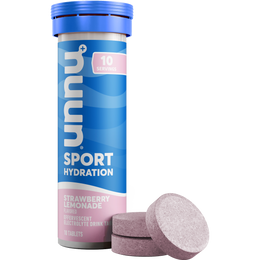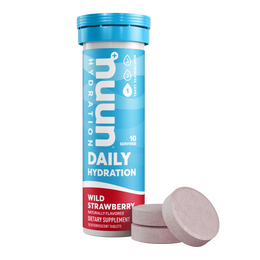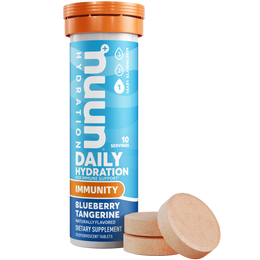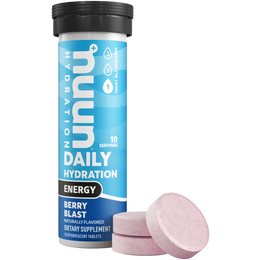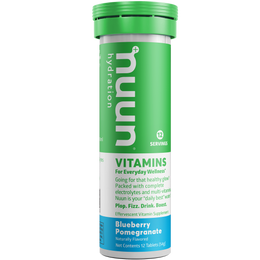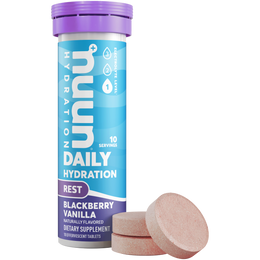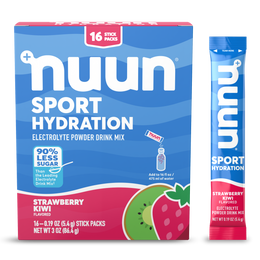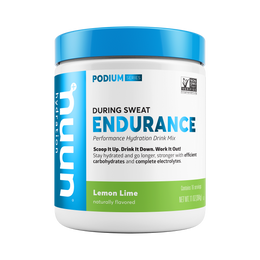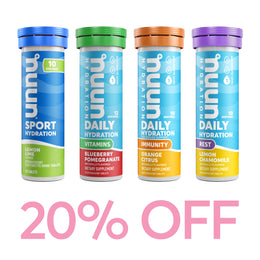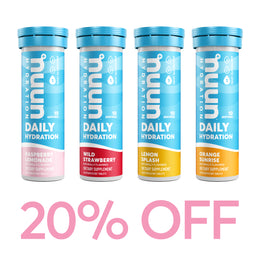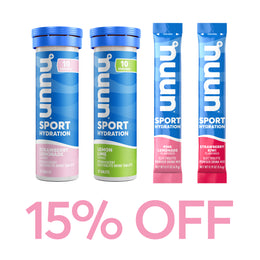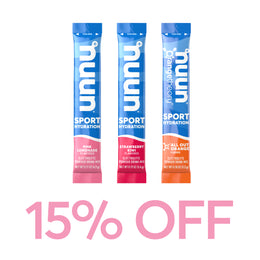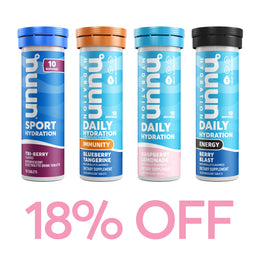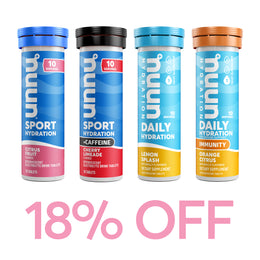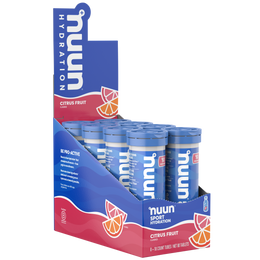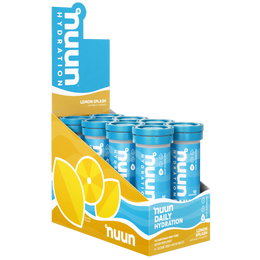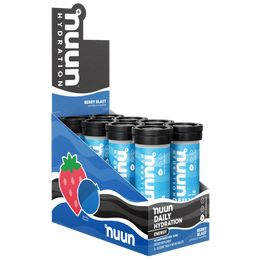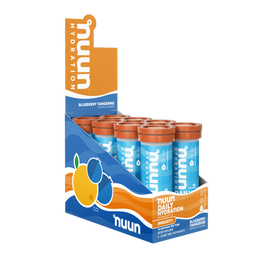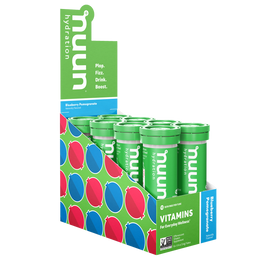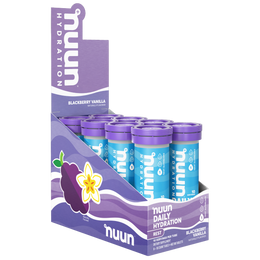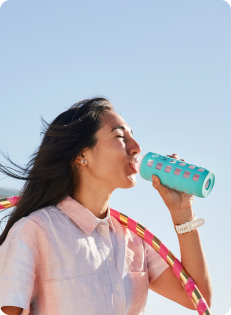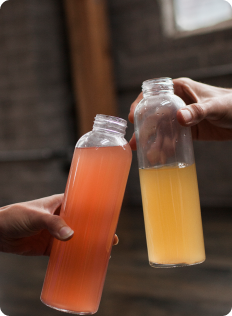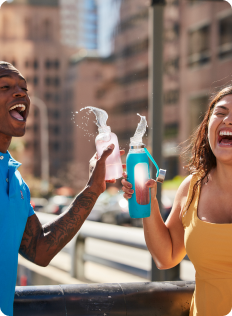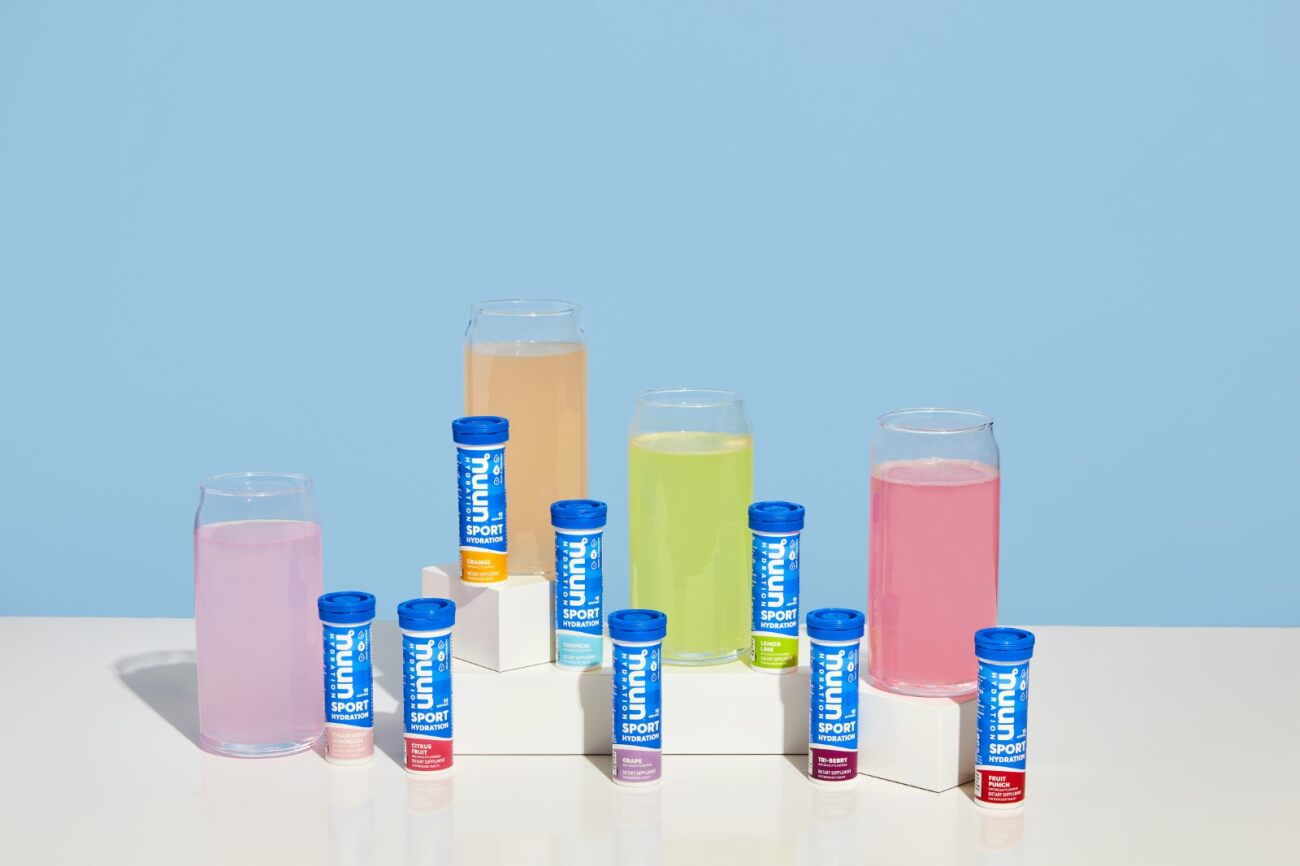Is Cold Water Bad For You?

Hydration hero, or bad habit? There's a cold war brewing over the right way to drink water.
Depending on who you ask, cold water can inspire better workouts, rev up your metabolism, and solve all your problems. Or it might wreck your digestive system, destroy your teeth, and leave you vulnerable to a laundry list of ailments.
The best way to optimize your water intake? Electrolytes.
Take your water to the next level with a fizzy tablet of Nuun Sport. The optimized electrolytes will help you absorb the water you drink and replenish essential minerals.
The Cold War: Is it better to drink cold or room temperature water?
There are two main schools of thought around water temperature... and the cold-water camp is solidly in the minority.
Drinking cold water is a predominantly American pastime. Diners in the U.S. expect a glass of water to arrive brimming with ice, while restaurants across much of the world offer room-temperature water. Other cultures prefer warm-to-hot beverages, even in the sweltering weather – think a steaming cup of tea on a hot summer day in India.
Far away from the ice-loving Americans, traditional Eastern medicine views drinking hot beverages as a fundamental form of self-care. While drinking cold water is believed to threaten the proper functioning of internal organs like the heart and lungs, warm water restores balance and energy to an optimal state.
So who's correct? Many scientists around the world have set out to find out.
Why is cold water bad for you?
Avoiding cold water is a tenet of Traditional Chinese Medicine. According to millennia-old practices, cold water disturbs the body's optimal balance, or Qi, because it requires the body to work harder to regulate core temperature and stresses vital organs.
Are there any benefits of drinking cold water?
Yes. Cold water can be especially satisfying on a hot day or after a hard workout. If you're exercising in hot weather, you might even find that some crisp, cold water can even help you prolong your workout. If a refreshing cold beverage inspires you to keep hydrating during exercise, try freezing water or a healthy sports drink to take with you so it will stay nice and cold as it melts.
When is it better to drink room temperature water?
Room temperature water is a great choice for everyday drinking. Anything below 98ºF will still feel cool compared to the temperature in your mouth.
Is it better to drink cold or room temperature water?
The most hydrating water is the one that you actually drink. If you find cold water more satisfying, you'll be more likely to seek out water and stay hydrated. If you prefer warm or room temperature water, you'll be more likely to keep sipping.
Benefits of Drinking Cold Water vs. Drawbacks:
What does the science say?
First things first: there is no scientific evidence that cold water has any effect on metabolism. Good hydration – with water of any temperature – is a positive tool for every body in every circumstance.
In matters of the heart, the jury is still out: One study found that drinking cold water resulted in elevated blood pressure, while another study found that cold water decreased heart rate. But these studies are small and hardly conclusive.
Practically speaking, one of the great benefits of drinking cold water is for refreshment during exercise. In one fascinating scientific study, researchers set out to determine whether drinking cold water created a cooling effect on athletes during hot-weather exercise.
Unsurprisingly, ingesting cold water cooled the athletes. But there was one large caveat: the cold water also diminished their natural sweat responses. By undermining the body's most powerful self-cooling function, researchers discovered that the sweat reduction effectively canceled out the benefits of drinking cold water!
This study seems to align with what may Eastern cultures have long understood: hot drinks are counterintuitively cooling. Sipping hot tea in sweltering weather is customary, not in spite of the heat but because of the heat. It makes you sweat, which helps you cool down.
"You're more likely to drink water if you choose the water that's most pleasant to you"
The Bottom Line: Who wins the battle of the beverages?
As you may have guessed, there's no clear winner or loser in the debate over cold water.
More than any particular temperature, studies have found that the best determiner of healthy hydration is simply voluntary water consumption. You're more likely to drink water if you choose the water that's most pleasant to you.
Where science is concerned, the documented difference is so hair-splittingly small that you should trust your gut – literally! If you're accustomed to chugging ice water and find you're having unexplained tummy troubles, try a switch to drinking room temperature water instead. According to the tenets of Traditional Chinese Medicine, your digestive system might appreciate a break from the challenge of warming up cold water.
Whether steaming hot, freezing cold, or somewhere in between, any kind of H20 is contributing to your daily hydration needs. If you have a strong preference toward a particular temperature, it's okay to follow your cravings! There's no one way to hit your water goals, and in the end, the best way to drink water is to drink water.


